Happy Friday! In Dispatch news: we have a new website! It’s easier to read, more stylish, and has some handy new features, including the ability to easily change the text size of any article on the site (including TMD!). To read more about the site design, check out our FAQ for all the details, and if you have any issues, please email us at members@thedispatch.com or leave a comment below.
Quick Hits: Today’s Top Stories
- Naval Station Great Lakes confirmed Wednesday that the Department of Homeland Security had requested assistance with immigration operations, presumably in the nearby city of Chicago. The military base’s spokesman said DHS had asked for “facilities, infrastructure, and other logistical needs to support DHS operations,” one day after a Tuesday report by the Chicago Sun Times that the base’s commanding officer, Navy Capt. Stephen Yargosz, had informed staff via email that DHS agents would be at the base from September 2 through the end of the month. Yargosz described the agents’ operations as “similar to what occurred in Los Angeles earlier this summer,” adding the planned operation may also involve the deployment of National Guard troops. On August 23, the Washington Post reported that the White House was considering sending U.S. troops and Illinois National Guardsmen to quell Chicago crime.
- Israel conducted airstrikes against Houthi targets in Yemen’s capital, Sanaa, on Wednesday, after Israeli defenses intercepted an attack drone launched by the terrorist group earlier in the day. According to several Israeli media outlets, the strikes targeted a gathering of top Houthi officials, who had gathered in Yemen’s capital to hear a speech from Abdul-Malik al-Houthi, the group’s leader. The attack follows Israel’s airstrikes on Yemen on Sunday, which also targeted Houthi terrorists amid the Iranian-backed group’s continuing efforts to attack Israel using ballistic missiles and one-way drones.
- Russia launched a large-scale aerial attack on Kyiv overnight on Thursday, which Ukrainian officials said killed at least 22 people, including four children, and injured 63 others. Russia fired 598 drones and 31 missiles at Kyiv and other cities during the night and early morning, striking, per Ukrainian President Volodymyr Zelensky, “residential houses, office centers, civilian enterprises,” and the building that houses the European Union’s Ukraine delegation. The office of the British Council was also damaged. On Thursday, both the EU and the United Kingdom summoned Russian envoys to Brussels and London, respectively, to discuss the Kremlin’s attack. “The Russians are not choosing to end the war—only new strikes,” Zelensky said, urging global leaders to impose new sanctions on Russia in response to the deadly strike on Ukrainian civilians.
- Federal Reserve Governor Lisa Cook filed a lawsuit against President Donald Trump on Thursday, challenging his effort to remove her from the central bank. A president may only legally remove a sitting Federal Reserve governor “for cause,” which, per Trump, allegations of mortgage fraud made against Cook constituted. However, Cook’s lawsuit argues that because such claims have “never been investigated, much less proven,” Trump’s action is unlawful. It further states, “the mortgage allegations against her are pretextual, in order to effectuate her prompt removal and vacate a seat for President Trump to fill and forward his agenda to undermine the independence of the Federal Reserve.”
- France, Germany, and the U.K. on Thursday began the process of reinstating sanctions on Iran in response to the country’s active nuclear program. The trio of countries, known collectively as the E3, lifted the sanctions in 2015 after signing the Joint Comprehensive Plan of Action, or Iran nuclear deal, in which Tehran agreed to restrict its nuclear development. But the E3 said Iran has violated the deal’s terms, and on Thursday deployed a “snapback” process to reimplement the Iranian sanctions following a 30-day window. In a phone call with foreign ministers for the three countries, Iranian Foreign Minister Abbas Araghchi called the move illegal, and promised his country would “respond appropriately to this illegal and unjustified action by the three European countries, in order to protect and guarantee its national rights and interests.” To learn more about Iran’s nuclear program, read Monday’s TMD.
- Multiple news outlets reported Thursday that the White House has selected Health and Human Services (HHS) Deputy Secretary Jim O’Neill to serve as acting director of the Centers for Disease Control and Prevention, after firing the agency’s director, Susan Monarez, on Wednesday. Monarez reportedly clashed with HHS Secretary Robert F. Kennedy Jr. over vaccine policy ahead of her dismissal, which she continues to challenge as illegal. Four other senior CDC leaders resigned on Wednesday, including the chief medical officer and the heads of key disease centers. O’Neill is a former tech investor who worked closely with billionaire Peter Thiel and is part of a movement to extend human lifespan. Kennedy appointed O’Neill, who doesn’t appear to have experience in public health, as HHS Deputy Secretary in June.
Strait Talk
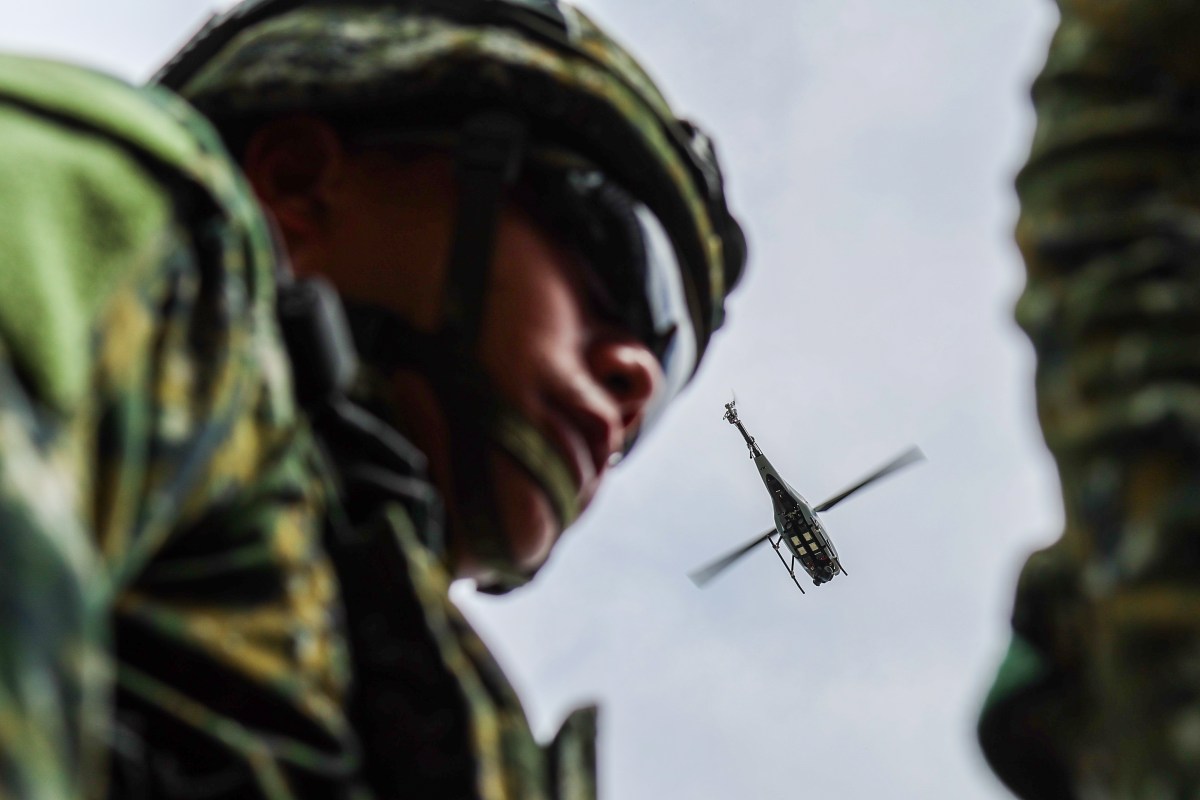
This month, television screens in Taiwan were filled with footage of the Chinese military advancing on the island, as a naval blockade slowly took hold and panicked Taiwanese citizens considered whether to flee the country as communications and supply chains broke down.
The chaotic scenes, however, were not real. They were from a new television show, Zero Day Attack, which depicts an attempted Chinese takeover of the island nation. But the show’s splashy success demonstrates how Taiwan is increasingly grappling with the potential for a Chinese move against the island.
Today, a congressional delegation led by Sen. Roger Wicker, the Republican chairman of the Armed Services Committee, arrived in Taiwan. During a meeting at the presidential office in Taipei, Wicker told the country’s president, Lai Ching-te, that he was there to bring “a message from the Congress of commitment, of long-term friendship and a determination that a free country like Taiwan absolutely has the right to remain free and preserve self-determination.” However, Wicker’s visit also comes as U.S. officials have questioned Taiwan’s commitment to its own defense, as well as the wisdom of defending the island from invasion.
Some top U.S. officials believe Taiwan is insufficiently committed to its own defense. During the 2024 presidential campaign, President Donald Trump dodged the question of whether the U.S. would intervene militarily to defend the island, saying, “Taiwan should pay us for defense.” During his confirmation hearings in March, Undersecretary of Defense for Policy Elbridge Colby told the Senate that Taiwan should increase its defense spending to 10 percent of GDP, far above current levels. Trump also claimed earlier this month that Chinese President Xi Jinping told him he would not invade during Trump’s presidency.
Last month, Trump administration officials canceled a planned stopover by President Lai in New York during a diplomatic trip (such stops are usually used to discreetly meet with U.S. officials). Defense Department officials also abruptly canceled a meeting with the Taiwanese defense minister in June. “There’s a lot of concern right now about the Trump administration’s support for Taiwan, and general Republican support for Taiwan in this kind of political climate,” David Sacks, a fellow for Asia Studies at the Council on Foreign Relations, told TMD, pointing to the general lack of pushback from congressional Republicans following the canceled meetings.
The White House’s trade policy also seems to conflict with its stated desire for Taiwan to increase its defense commitment. It imposed a 20 percent tariff on all Taiwanese exports earlier this month, with no deal reached yet, and Trump has threatened a further 100 percent tariff on semiconductors, a pillar of Taiwan’s economy.
Some evidence might indicate that the Taiwanese are relatively sanguine about the threat of invasion. Sixty-five percent of Taiwanese citizens think an invasion in the next five years is unlikely, according to a May survey by the Institute for National Defense and Strategic Research; the common sentiment being that China and the Taiwanese are too closely bound economically and culturally for conflict.
But the reality is more complex. “I think people have a hard time understanding from this side of the ocean [that] people in Taiwan have been living with this since 1949,” Shelley Rigger, a political scientist at Davidson College who studies Taiwanese politics, told TMD. “It’s not that people … don’t believe there’s a threat, it’s that they believe that this threat, having been successfully managed for decades, can continue to be successfully managed and avoided.”
For Taiwanese politicians, Rigger argued, the fundamental question is how best to preserve their nation’s sovereignty; not necessarily how best to saber-rattle against China. But it’s also true that the island has made significant efforts in recent months to beef up its defenses. The government has expanded mandatory military service and plans to stockpile food supplies, boost its reserves of medical resources like blood, and construct more bomb shelters. Last week, the government also announced plans to increase defense spending to 3.32 percent of GDP in 2026, a 20 percent rise from current levels.
“There’s this kind of narrative that Taiwan isn’t taking its defense seriously, so why should we take it seriously?” said Sacks. “That’s a flawed narrative, because Taiwan is taking it seriously.”
China is also well aware that a full-scale invasion to conquer Taiwan would be incredibly difficult. It would be one of the largest amphibious operations in history, with the only real comparisons being some of the bloodiest battles of World War II: the invasion of Okinawa by U.S. forces, in which 60,000 men were landed on the first day, and the assault on Normandy during Operation Overlord, which saw 156,000 troops land on D-Day. By contrast, Chinese sea- and air-transport capabilities likely top out at about 20,000 soldiers per trip.
Unlike the Allied sea-borne assaults against militaries that had been battered by years of high-intensity warfare and bombing campaigns, Chinese naval and air forces are unlikely to possess command of the air or seas around Taiwan. American airbases are studded around the Indo-Pacific, including in Japan, and four carrier strike groups patrol the region. Chinese troops attempting to seize beachheads and airfields would have to survive a contested passage across the Taiwan Strait, assailed by missiles, torpedoes, and airstrikes, before even contending with mobilized Taiwanese land forces.
In the event of a conflict, Taiwanese and American troops (presuming U.S. intervention) might also be reinforced by the Japanese, Australian, and British militaries. And this week, the Philippines, Australia, and Canada conducted joint naval drills in the South China Sea.
But even if an all-out invasion would be enormously complex and costly for China, it has other options. Mark Cancian, a senior adviser with the Center for Strategic and International Studies’ Defense and Security Department, recently ran an extensive series of war games simulating a Chinese blockade of Taiwan. He noted that a blockade could take many forms: a complete quarantine of the island, an attempt to assert control over specific types of shipping or particular ports, or just stepping up not-quite-open-warfare “grey zone” tactics using the Chinese coast guard, as China already does with other nations in the region.
However, both sides—China, as well as Taiwan and its allies—would face major hurdles in any potential conflict. The U.S.—with munitions inventories already stretched by wars in Ukraine and the Middle East—might struggle to supply enough ammunition for a sustained high-intensity conflict. “U.S. munition inventories are just not deep enough to sustain a long conflict” using the best available long-range antiship missiles, Cancian told TMD. “We run out in just a couple of days.” In contrast, China has undertaken a long-term project to build extensive inventories of missiles in preparation for precisely such a naval clash. In short, they would be able to shoot farther and for a longer time period than the U.S. and its allies.
Chinese amphibious lift capacities (i.e., the number of soldiers it can transport across the 100-mile Taiwan Strait) are a significant impediment to any potential invasion. Its military is also inexperienced—China has not fought a war since 1979, when it briefly invaded Vietnam—and Xi has purged dozens of officials from the heights of the People’s Liberation Army command structure in recent months, as part of a corruption crackdown, potentially eroding crucial expertise. “A Taiwan operation would be incredibly, incredibly complex and difficult for China to pull off,” said Sacks.
For those reasons, along with China’s recent economic challenges, an imminent invasion is unlikely. “Domestic economic challenges and the ongoing purge of the senior military leadership in China make significant military action against Taiwan less likely in the near term, barring a major event that the leadership feels they must respond to,” Jessica Chen Weiss, the faculty director of the Institute for America, China, and the Future of Global Affairs at Johns Hopkins School of Advanced International Studies, wrote in an email to TMD.
But in the medium term, trends are running in China’s favor. China can expend more focus on Taiwan than the U.S. It’s able to direct most of its financial and operational resources on planning for an invasion of Taiwan, while the U.S. is stretched between a globe-spanning array of military commitments. Just in the brief war between Israel and Iran this summer, the U.S. used more than a quarter of its supply of high-end THAAD missile interceptors aiding in the defense of Israel—and China’s missile arsenal is significantly larger and more advanced than the Islamic Republic’s. “The United States is getting pulled in a lot of different directions, and China, frankly, is not,” Sacks told TMD. “The balance of power is shifting in China’s favor.”
Several U.S. officials have stated that China is aiming to have a military prepared to invade Taiwan by 2027. That doesn’t mean, however, that it would instantly do so. The state of opposing militaries and perceptions of U.S. preparedness to intervene would matter enormously, both Cancian and Sacks stressed to TMD.
Cancian argued that U.S. replenishment of its munitions stocks and Taiwanese investments in not just military hardware, but energy infrastructure and merchant fleets, would send a strong message to China. Taiwan’s recent shutdown of its last nuclear power plant, making it more reliant on energy imports, was concerning, he said. For Beijing’s part, any sustained investment in cheap, limited-range amphibious transport ships could signal preparations to invade. “If they start building lots of those, that’s when many people would get quite nervous,” he said.
That may not be in the next few years, if Xi’s comments to Trump are to be believed. But the Chinese president, who has said before that Taiwan “cannot be passed down from generation to generation,” may simply be biding his time. After all, Trump said that Xi’s assurances were followed by an ominous qualifier: “But I am very patient, and China is very patient.”
Today’s Must-Read

“THE ALAMO HAS FALLEN!” In March 1836, that tocsin spread terror throughout the fledgling Texas Republic. The timing couldn’t have been worse. On the second day of that month, while Antonio López de Santa Anna’s cannon hammered the walls of the mission fort, rebel delegates declared independence from Mexico; four days later, the caudillo launched an assault and killed every Texian (as Anglo-American colonists of Texas styled themselves) defender. The Alamo garrison, commanded by Lt. Col. William Barret Travis, had overwhelmingly supported separation from Mexico. On March 3, Travis wrote his friend Jesse Grimes explaining why he and his men were risking their lives.
Toeing the Company Line
Our Own Lysenko
Giving Americans the health system they voted for.
Chaos and ‘Malaise’ at the CDC
Layoffs, directives, and political interference roiled the agency even before the attempt to oust Susan Monarez.
In Defense of Thoughts and Prayers
Hectoring people for displaying heartfelt sympathy accomplishes nothing.
It’s a TARP!
Trump’s Intel deal recalls bailouts of years past—but worse.
Shattering the Separation of Powers
Presidential impoundment Is dangerous and unconstitutional.
No, Trump Was Not ‘Quietly Removed’ as a Nobel Prize Nominee
The committee does not publish or even confirm the names of nominees.
Caving to Trump | Roundtable
Cosplaying authoritarianism or the real thing?
Worth Your Time
- We at TMD are constantly striving to improve ourselves, but we have noticed that self-help books don’t seem to be the most effective method, despite their perennial presence atop bestseller lists. Emma Goldberg has reached the same conclusion, asking in The New York Times: “Is Today’s Self-Help Teaching Everyone to Be a Jerk?” The answer may be yes. “Maybe it’s no surprise, then, that in a time of hyper-visible conflict — social media filled with memes of crying migrants shared by the official White House account, insults hurled in public between the country’s highest leaders — the self-help message of the day tells its readers that it’s perfectly OK to turn inward, even if that means ignoring the apparent travails of others,” she wrote. “It’s a message retrofitted for appeal in a moment when every glance at a phone screen surfaces wrenching images of catastrophe. Really, the prevailing advice of 2025 seems to be this: It’s OK to be a little bit of a jerk. ‘The Courage to Be Disliked’ has sold more than 10 million copies. ‘The Subtle Art of Not Giving a F*ck’ has been on the New York Times best-seller list for more than 300 weeks since it came out in 2016. In September comes the much-anticipated ‘Fawning: Why the Need to Please Makes Us Lose Ourselves — and How to Find Our Way Back.’ (Even ‘Atomic Habits,’ by James Clear, which has spent more than 250 weeks on the best-seller list, tells its readers not to worry as much about making thorny macro changes in their lives and to focus instead on little adjustments. Americans have always loved to believe that the gap between you and a better you is as small as making the right breakfast.)”
Presented Without Comment
CNN: Fight Breaks Out in Mexican Senate, Following Debate on U.S. Military Intervention
Also Presented Without Comment
Wall Street Journal: Tulsi Gabbard Blindsided CIA Over Revoking Clearance of Undercover Officer
Tulsi Gabbard, director of national intelligence, surprised Central Intelligence Agency officials last week when she included an undercover senior CIA officer on a roster of 37 current and former officials she stripped of security clearances.
Most of the 37 people had either participated in intelligence assessments related to Russia’s attempt to influence the outcome of the 2016 U.S. presidential election or had signed a 2019 letter calling for President Trump’s impeachment.
Gabbard didn’t know the CIA officer had been working undercover, according to a person familiar with the fallout from the list’s release. Three other people with knowledge of the situation said that Gabbard’s office didn’t meaningfully consult with the CIA before releasing the list.
Gabbard’s office delivered the list of 37 people to the CIA the evening before the list’s release, according to three people familiar with the communications and emails read to The Wall Street Journal.
The national intelligence office didn’t seek the CIA’s input about the composition of the list, and the CIA had no foreknowledge of Gabbard’s posting on X the following day that revealed the names, including that of the covered CIA officer, according to two of the people familiar with the events.
Let Us Know
Have any thoughts or questions about today’s newsletter? Drop us a note in the comments!




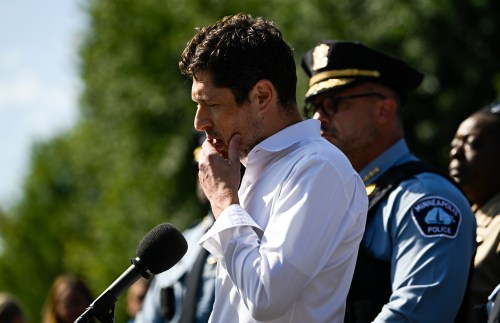








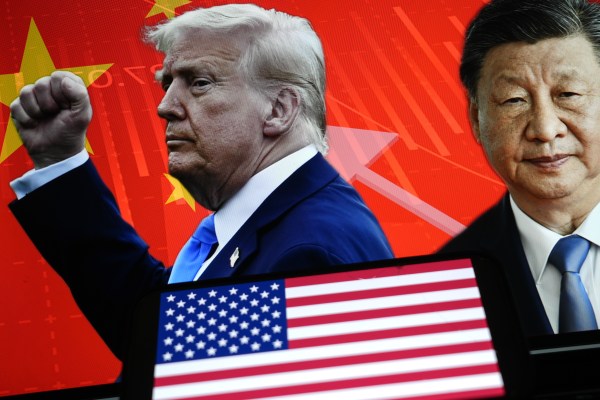
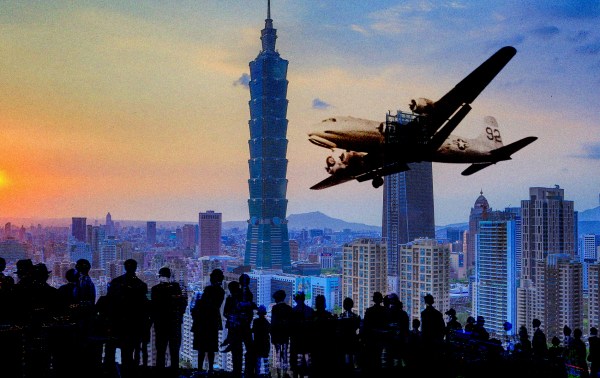


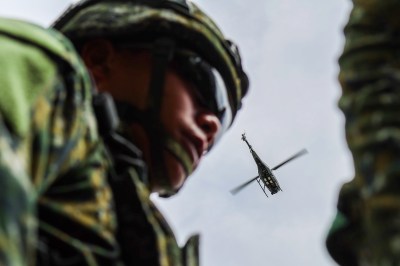
Please note that we at The Dispatch hold ourselves, our work, and our commenters to a higher standard than other places on the internet. We welcome comments that foster genuine debate or discussion—including comments critical of us or our work—but responses that include ad hominem attacks on fellow Dispatch members or are intended to stoke fear and anger may be moderated.
With your membership, you only have the ability to comment on The Morning Dispatch articles. Consider upgrading to join the conversation everywhere.